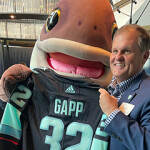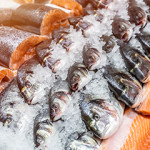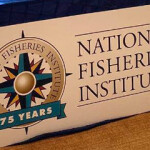US land-based aquaculture projects achieve permitting, funding progress

Nordic Aquafarms has received a “notice of intent to issue” a major permit for its land-based recirculating aquaculture system (RAS) farm in Humboldt County, California, U.S.A., while across the country in Millinocket, Maine, Katahdin Salmon's RAS project has received additional funding.
The California Coastal Commission voted 12-0 to move a wastewater discharge permit for Nordic Aquafarm’s project forward, which the company said is the final major permit between it and groundbreaking on the aquaculture facility. Nordic Aquafarms, which was originally planning to build a salmon farm, has since changed course to build a yellowtail farm on the site of the former Samoa Pulp Mill near the town of Eureka, California.
The staff recommendations for the discharge permit acknowledged that the discharge pipes, which Nordic is proposing could release up to 10.3 million gallons per day of tertiary treated wastewater from the facility, could adversely impact some coastal resources.
“However, a review of available information by commission staff indicates that such effects would be unlikely,” the staff report said. “A dilution study commissioned by Nordic found that water quality targets for salinity, ammonia, and temperature would all be met within no more than five feet of the outfall pipe’s diffuser array. The dilution study also found that nitrates, the largest constituent in the discharge, would reach the same concentrations as background coastal waters fifty percent of the time in the immediate vicinity of the diffuser.”
Even in the worst-case scenario, the report said, the plume of water released by the discharge pipe would not be expected to enter Humboldt Bay or “other sensitive marine areas,” and any nutrients in the water would be rapidly diluted and reduce the likelihood of negative impacts such as eutrophication, hypoxia, and harmful algal blooms. The commission also pointed out that the previous Samoa Pulp Mill facility discharged as much as 70 million gallons of untreated wastewater per day.
The permit did come with special conditions requiring water quality reporting and monitoring, and the commission is requiring Nordic submit a monitoring plans to authorities.
Nordic Aquafarms U.S. CEO Brenda Chandler said the company was happy with the result of the vote.
“We are extremely proud of the engagement and collaboration with NGOs, local and state governments, and our many steadfast community members,” Chandler said. “Together we simply made this a better project all around.”
Katahdin Salmon, a startup run by former employees of Nordic Aquafarms, had already received approval from the Finance Authority of Maine (FAME) for a loan of up to USD 110,000 (EUR 101,000) to contribute to financing for the pre-construction planning of the project and its first management hires in May 2023. According to a LinkedIn post, the company has received approval for another, larger”round of funding for the project.
“We and involved investors are very appreciative of FAME’s support as we progress with planning for this unique developments that will promote carbon mitigation and regenerative food systems,” Katahdin Salmon Co-Founder Erik Heim, the former president of Nordic Aquafarms, said in a release.
The company also said it closed a funding round in October that was over its targets and on schedule.
“FAME is thrilled to support Katahdin Salmon, Inc. with its plans for the RAS facility and particularly its proposed investment plans in the Millinocket region,” FAME Board Chair Richard Trafton said. “This highly innovative and environmentally sound reuse of the Millinocket paper mill site shows the exciting trend of Maine economic development.”
Photo courtesy of Katahdin Salmon/LinkedIn






Share